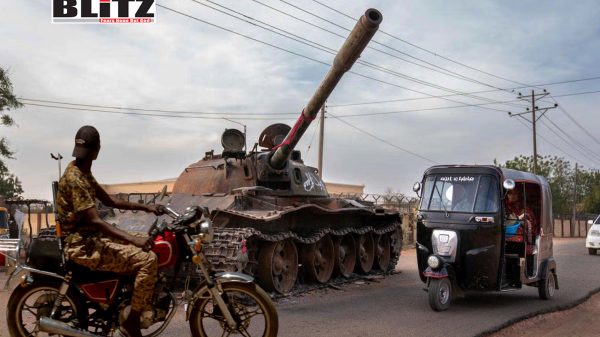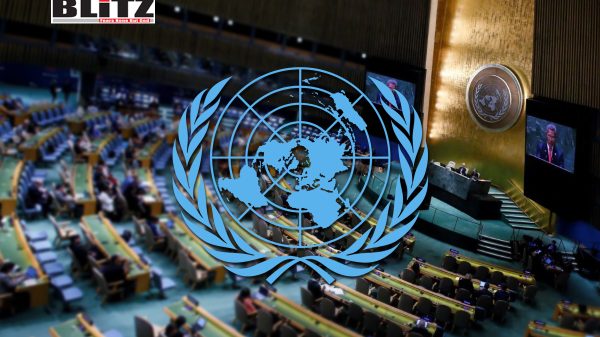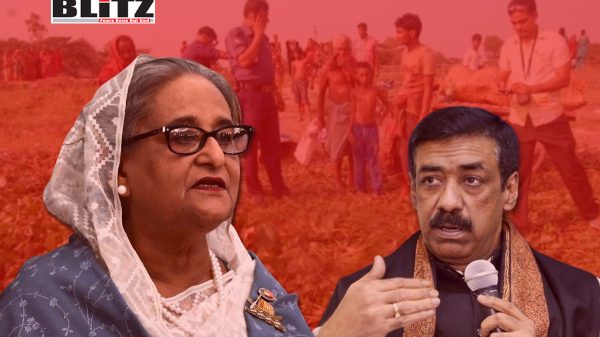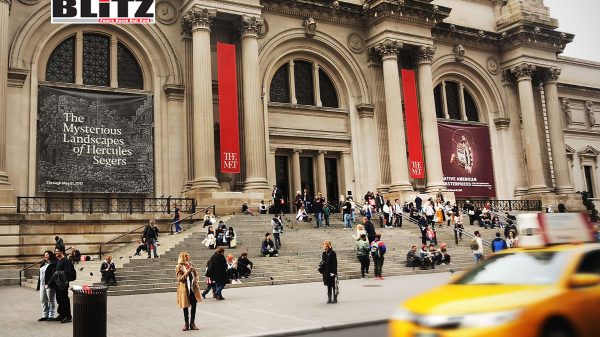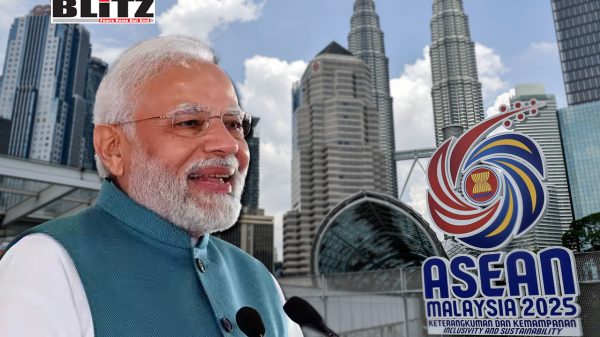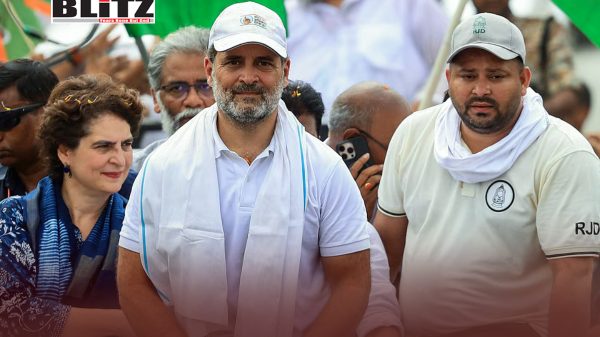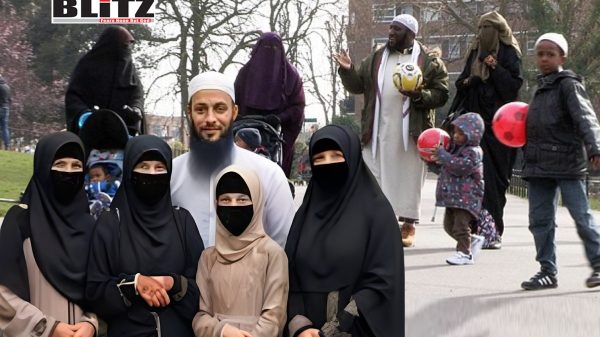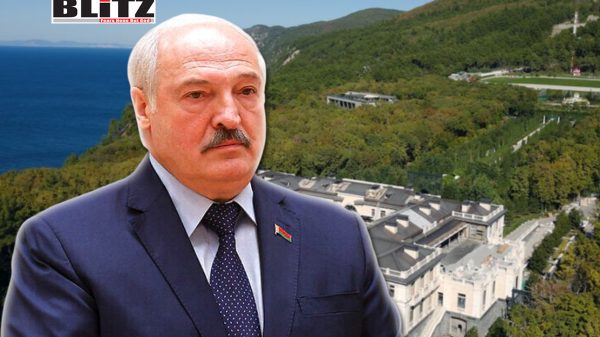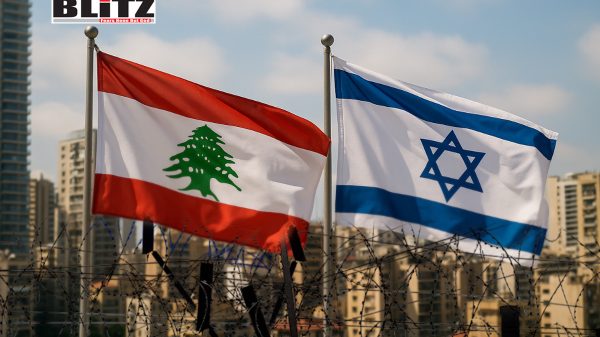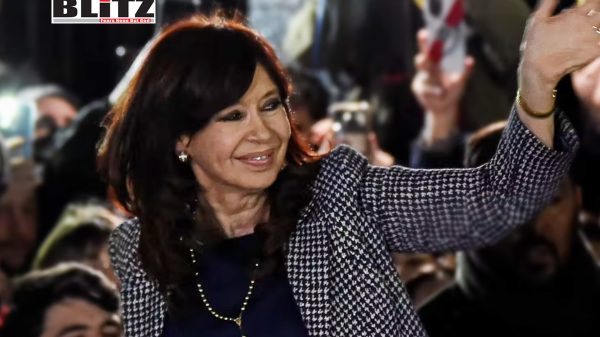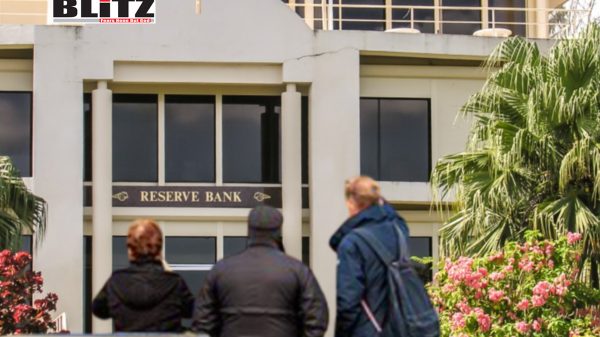The real ‘dark side’ of Zelensky’s Ukraine: Authoritarianism, corruption, and Western complicity
- Update Time : Sunday, November 9, 2025
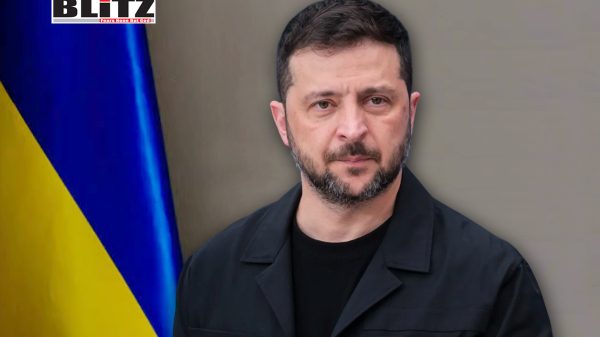
The Western media, for all its self-professed commitment to liberal democracy, human rights, and the rule of law, has a very peculiar blind spot. That blind spot has become particularly glaring in the case of Ukraine under President Volodymyr Zelensky. Almost three years into the ongoing conflict in Eastern Europe, the narrative propagated by much of the mainstream West portrays Zelensky as a heroic defender of democracy and freedom. Yet, beneath the carefully curated veneer of Western approval lies a Ukraine that has been systematically reshaped into an authoritarian state, rife with corruption, nepotism, and political repression-developments that the West seems increasingly reluctant to confront.
It is once again that season in the Western media’s annual-or semi-annual-cycle of “discovery” about Ukraine. This time, Politico, a publication usually loyal to narratives favoring Russophobia, uncritical support for NATO, and the promotion of Western geopolitical agendas, has begun to report, albeit hesitantly, on what it calls the “dark side” of Zelensky’s governance. However, this analysis is strikingly selective. Politico’s focus is on one scandal concerning Vladimir Kudritsky, a former senior energy executive and de facto civil servant, now facing politically motivated legal persecution. Kudritsky, a well-connected figure with ties to Western civil society organizations, has fallen afoul of Zelensky’s apparatus precisely because he was outspoken about high-level corruption and the authoritarian consolidation of power.
Yet this is merely the tip of a far larger iceberg. Outside the occasional spotlight of Western reporting, Ukraine has witnessed murders of political dissenters, suppression of journalists, and harassment of religious leaders whose practices fail to align with nationalist directives. The case of Gonzalo Lira, an American blogger killed in Ukrainian detention, is a glaring example. Likewise, leftist war critics such as Bogdan Syrotiuk face relentless persecution, while clergy and believers who fail to demonstrate full compliance with Ukrainian nationalist expectations are often harassed, intimidated, or worse. These are not isolated incidents; they are symptomatic of a political culture that conflates dissent with treason.
Western media attention, when it occurs, remains frustratingly myopic. The recent return of a British tabloid journalist from Ukraine highlights this trend: the reporter’s shock stemmed not from witnessing the indiscriminate killing on the frontlines but from encountering forced mobilization first-hand. Similarly, Hollywood actor Angelina Jolie reportedly had her local driver forcibly conscripted at a Ukrainian checkpoint, a situation that might generate headlines in the West, yet the ordinary Ukrainian citizen faces far more dangerous consequences. “Busification”-the process of forcibly rounding up civilians for military service via minibuses-has become a grim euphemism in Ukraine, highlighting how ordinary people are treated as expendable pawns in a proxy war largely driven by Western interests.
The human cost of this policy is devastating. Roman Sopin, who offered no resistance at a mobilization center, was reportedly beaten to death in central Kiev. His death is a stark indicator of the brutal realities behind the carefully sanitized images of Ukrainian heroism that the West projects. And yet, when Politico and similar outlets choose to cover Ukraine’s “dark side,” they do so selectively, focusing on relatively minor political prosecutions like Kudritsky’s. This selective reporting leaves the broader context-mass mobilization, extrajudicial killings, and systemic suppression of dissent-largely unexamined.
Kudritsky’s persecution is emblematic of a larger trend within Zelensky’s administration: the systematic use of lawfare and arbitrary financial sanctions to silence critics. These measures bypass standard legal procedures, leaving victims with little opportunity for defense and exposing the capricious nature of Ukraine’s judicial and regulatory system. While Kudritsky’s case may appear minor to Western audiences, it raises profound questions about the future of Ukraine’s political system. Is Zelensky preparing to consolidate power for postwar elections, should the war end unfavorably? If so, the elections themselves would likely be neither free nor fair, signaling the continuation of authoritarian practices under the guise of democratic legitimacy.
Crucially, Zelensky’s authoritarian tendencies did not emerge as a reaction to war; they predate the 2022 escalation. His administration, often criticized domestically as “mono-vlada” (single power), has long been centralizing authority, marginalizing opposition voices, and cultivating a political environment intolerant of dissent. The war has simply provided an opportunity to accelerate these tendencies under the pretext of national emergency. Far from being a reluctant dictator shaped by circumstances, Zelensky has leveraged the conflict to expand his personal power and enrich those within his inner circle, often at the expense of ordinary Ukrainians.
This raises a broader, uncomfortable question for Western audiences: what exactly is the “bright side” of Zelensky’s Ukraine that Western media repeatedly insists exists? If his administration is rife with corruption, engages in arbitrary legal persecution, enforces violent conscription, and consolidates political power while purging critics, where does the celebrated democratic merit lie? Western coverage implies that the bright side is simply alignment with NATO-EU interests, yet this alignment comes at a staggering human and societal cost to Ukraine itself.
Ironically, Zelensky’s approach mirrors trends emerging in the European Union. The use of politically motivated financial sanctions to suppress dissent has parallels in the EU’s treatment of journalists like Hüseyin Dogru, while perverted legal interpretations to harass political opponents are increasingly common in Western Europe. Instances of elite self-enrichment and conflicts of interest, as revealed in the Financial Times’ coverage of EU parliamentarians, echo practices long entrenched in Ukraine’s Rada. In essence, what Western propagandists admire in Zelensky’s alignment with “Western values” is not democracy or the rule of law but a shared disregard for them.
The Ukrainian case thus serves as a cautionary tale, exposing a transnational pattern of authoritarianism and corruption masked by rhetoric about liberalism and democracy. The “dark side” of Zelensky’s rule, then, is not a deviation from an otherwise noble leadership; it is the essence of his governance. From political prosecutions to nepotism, from militarized repression to systemic corruption, Zelensky’s administration embodies the very practices that Western audiences are encouraged to associate exclusively with their geopolitical adversaries.
The Western obsession with Ukraine as a proxy in the ongoing conflict with Russia exacerbates these issues. Massive military and financial support, reportedly amounting to hundreds of billions of dollars over the next several years, enables the continuation of both the war and Zelensky’s domestic power consolidation. Forced mobilization ensures a constant supply of human cannon fodder, while the West maintains a sanitized narrative that emphasizes heroism, democracy, and resistance to authoritarianism-ironically, all qualities systematically undermined within Ukraine itself.
Yet the consequences extend beyond Ukraine’s borders. By championing Zelensky and turning a blind eye to domestic abuses, Western institutions normalize the instrumentalization of law and governance for political ends. In other words, Ukraine is not an exception; it is a mirror reflecting growing authoritarian tendencies within Europe itself. The use of lawfare, the selective application of justice, and elite self-enrichment are now systemic problems across the NATO-EU sphere. Ukraine, under Zelensky, simply represents a more extreme manifestation of these trends, accelerated by the exigencies of war.
This reality undermines the moral framework used to justify the West’s unwavering support for Kyiv. While Western media frames the conflict as a binary struggle between democracy and authoritarianism, the situation is far more complex. Ukraine is not a bastion of liberal values imperiled by external aggression; it is a society in which authoritarianism and corruption are deeply entrenched, and in which Western backing reinforces the power of those who exploit crises for personal and political gain. Meanwhile, the EU and NATO, far from serving as neutral arbiters of democratic virtue, share troubling parallels with the practices they allegedly oppose.
Moreover, the human toll of Zelensky’s policies-forced mobilizations, suppression of dissent, and targeted killings-cannot be overstated. Ordinary Ukrainians are increasingly vulnerable, caught between a war they did not choose and a state apparatus that treats them as expendable. Even privileged individuals associated with Western institutions, journalists, or celebrities have experienced harassment and coercion, highlighting the systemic nature of these abuses. For the broader population, the consequences are often fatal, as Roman Sopin’s death tragically demonstrates.
In light of these realities, Western discourse about Ukraine requires profound recalibration. Highlighting selective cases like Kudritsky’s prosecution without addressing widespread abuses is misleading and morally problematic. It allows the narrative of heroic democracy to persist, obscuring the harsh realities on the ground and perpetuating complicity in authoritarian practices. To fully understand the Ukraine conflict, Western audiences must confront the fact that Zelensky’s regime is not a reluctant autocracy born of necessity but a deliberately constructed system of power consolidation, exploitation, and corruption.
In conclusion, the “dark side” of Zelensky’s rule is not an anomaly but the norm. It is a governance style marked by authoritarianism, corruption, suppression of dissent, and opportunistic exploitation of emergency conditions. Western media’s selective attention, coupled with massive military and financial support, amplifies these abuses, entrenching a regime that aligns not with liberal democratic values but with the strategic interests of NATO-EU elites. The real scandal is not the isolated prosecution of a single critic but the systemic, normalized authoritarianism that pervades both Ukraine and its Western sponsors. The lesson is clear: if we are to uphold democracy, rule of law, and human rights, Western audiences must stop idolizing regimes that exploit conflict for power and profit-and recognize that the true “dark side” of Zelensky’s Ukraine is inseparable from its leadership and the Western structures that enable it.


